Research Projects
Meet the doctors and their research projects for ORD’s 2024/2025 funding cycle
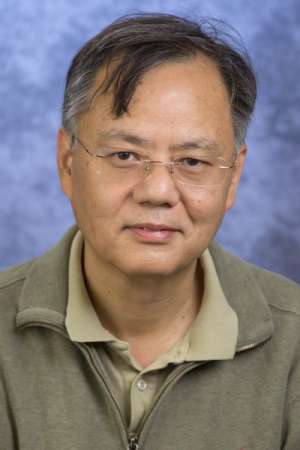 Shuang Huang, Ph.D.
Shuang Huang, Ph.D.
Title of project:
Improving Immunotherapy Effectiveness in Ovarian Cancer by Mitigating Immunosuppressive Tumor Microenvironment
Description of project:
Professor, Department of Anatomy and Cell Biology, UF College of Medicine
UF Health Cancer Center Research Program: Mechanisms of Oncogenesis
This project aims to develop a therapeutic strategy that can increase the responsiveness of ovarian tumors to immune checkpoint blockade-based immunotherapies. The team will test the hypothesis that docosahexaenoic acid, a commonly used dietary supplement, enhances responses to immunotherapy treatment in preclinical mouse models.
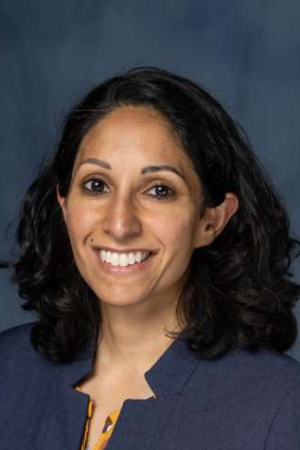 Maryam Rahman M.D.
Maryam Rahman M.D.
Title of project:
The Cathy D. Perry Trust Sponsored by Ocala Royal Dames for Cancer Research Advancing Precision Medicine: Integrating Laser Ablation and High-Throughput Screening for Personalized Therapeutics in Brain Tumor Treatment
Description of project:
Associate Professor, Lillian S. Wells Department of Neurosurgery, UF College of Medicine
UF Health Cancer Center Research Program: Immuno-Oncology and Microbiome
This project will use a high-throughput screening method developed by scientists at The Herbert Wertheim UF Scripps Institute for Biomedical Innovation & Technology to determine which drugs are efficacious against brain tumors in samples from human patients. Next, using preclinical mouse models, the team will test the ability to concentrate these drugs in brain tumors after laser ablation, which results in a window where the blood-brain barrier is open.
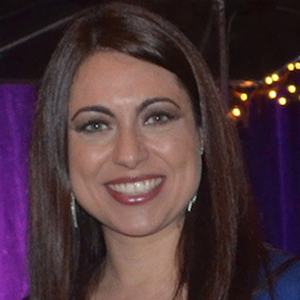 Marilena Tauro, PhD
Marilena Tauro, PhD
Title of project:
Defining the impact of autophagy blockade on triple negative breast cancer and remodeling of the tumor-immune microenvironment in the primary and metastatic setting: H. Lee Moffitt Cancer Center and Research Institute, Inc.
Description of project:
Triple Negative Breast Cancer (TNBC) is the deadliest subtype of breast cancer owing to its inherent high degree of heterogeneity, aggressive nature, and lack of long-lasting effective treatment options [1]. Sadly, 1 in 8 women will be diagnosed with breast cancer during her lifetime (American Cancer Society- Breast Cancer Statistics). Each year in the Americas alone, around 500,000 women are diagnosed with breast cancer and 1/5 of them are expected to die from this disease. Looking forward, these numbers are expected to surge by ~40%, and this increase is not even inclusive of the rising number of new cases of male breast cancer. Anthracycline/taxane-based regimens are among the standard of care for TNBC in adjuvant settings [2]. The addition of capecitabine or platinum may offer extra benefits to patients with TNBC, but at the cost of increased toxicity or adverse events [3]. Unfortunately, patients frequently present with de novo resistant disease or relapse quickly [4]. Tremendous effort has been made to understand the key programs and molecular mechanisms through which TNBC becomes chemo resistant to generate potential therapeutic targets to treat the disease and properly stratify patients for best outcome in clinical trials.
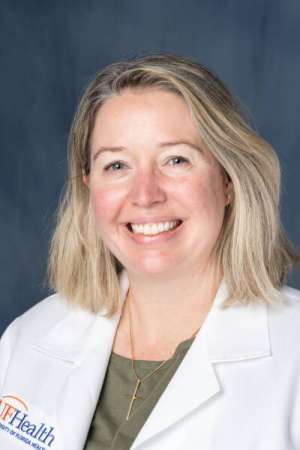 Jordan Milner, M.D.
Jordan Milner, M.D.
Title of project:
Allogeneic Stem Cell Transplantation Utilizing Alpha/Beta T-cell and B-cell Depletion for Pediatric, Adolescent, and Young Adults with Underlying Malignancies
Description of project:
Clinical Assistant Professor, Division of Pediatric Hematology Oncology, UF College of Medicine
UF Health Cancer Center Research Program: Immuno-Oncology and Microbiome
This project will test stem cell stability and viability after alpha/beta T-cell and B-cell depletion of peripheral blood stem cells, with the goal of improving the accessibility of stem cells for patients in the future. Allogeneic stem cell transplantation is used for many malignant and non-malignant disorders.
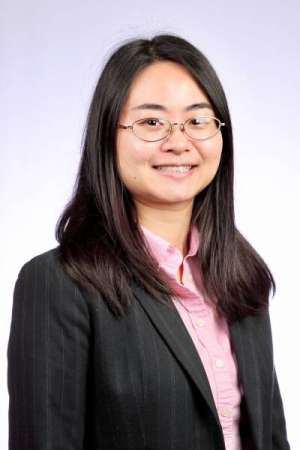 Bowen Yan, Ph.D.
Bowen Yan, Ph.D.
Title of project:
Developing Innovative Therapeutic Strategies to Overcome Chemotherapy Resistance in Elderly Acute Myeloid Leukemia Patients
Description of project:
Research Assistant Professor, Department of Pharmacology and Therapeutics, UF College of Medicine
UF Health Cancer Center Research Program: Mechanisms of Oncogenesis
This projects aims to improve leukemia treatment outcomes by understanding how aging impacts hematopoietic stem cells and their environment. The team will evaluate the potential of drugs that target aging cells to improve normal hematopoietic stem cell functions and prevent chemotherapy resistance in older leukemia patients.
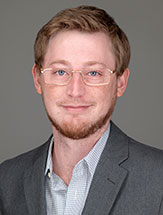 Mitch Braun, MD, PhD
Mitch Braun, MD, PhD
Title of project:
The role of memory T stem cells in the adoptive transfer of tumor infiltrating lymphocytes: H. Lee Moffitt Cancer Center and Research Institute, Inc.
Description of project:
The adoptive cell transfer (ACT) of tumor infiltrating lymphocytes (TIL) is a cutting-edge immunotherapy which has the proven ability to cure cancer, even types of cancer that have failed to respond to all other forms of treatment. Unlike chemotherapy, radiation, surgery, targeted therapies, and other forms immunotherapy – TIL therapy is unique because the “drug” consists of living cells and is personalized to each patient. We create the treatment by starting with a specific type of immune cells (called T-cells) which are already inside the tumor and have the ability to recognize and kill cancer but are failing at the task. We expand and enhance the function of these T-cells in the laboratory over the course of a few weeks and then give the patient back their own cells which have a renewed ability to fight their specific cancer. The FDA first approved a type of TIL therapy for the treatment of melanoma in February 2024; however, there is still a need to optimize this complex process. Our project is working to further advance TIL therapy by using new methods to create individualized T-cell products which are enriched with stem cell properties. This approach promises to increase the ability of TIL therapy to eradicate cancer and ensure that it doesn’t come back.
